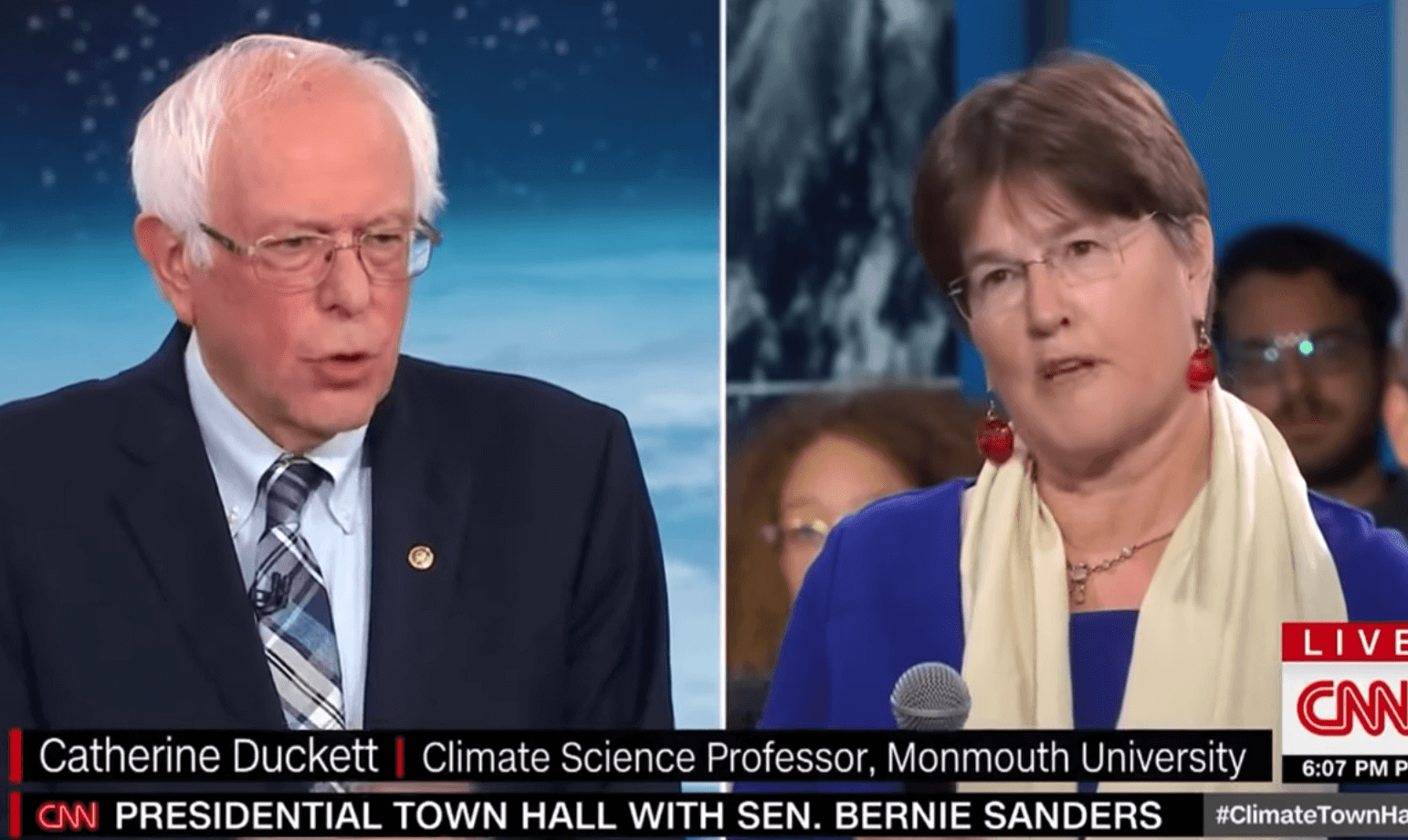On Sept. 4, the Honors School, School of Science, and Residential Life at Monmouth University sponsored an evening of popcorn, politics, and pancakes at Beechwood Residence Hall for students and faculty to watch Catherine Duckett, Ph.D., associate dean in the School of Science, on CNN’s Climate Crisis Town Hall. Duckett responded to the town hall moderators’ call for questions posted by CNN and circulated by the Citizens’ Climate Lobby, an international grassroots environmental group, of which she is a member.
Duckett’s question, “Do you support changes to FEMA [Federal Emergency Management Agency] rules to encourage retreat from properties suffering repeated catastrophic losses? If so, how do you plan to implement changes in a way that is fair and equitable?” was selected as one of the questions that might be asked if time permitted. The question ended up being posed to Vermont Sen. Bernie Sanders on the air.
Duckett said that her question was important particularly because many people haven’t realized that we are already feeling the impacts of climate change and solutions are not exclusively scientific, but rather policy, political or social solutions.
“FEMA rules requiring rebuilding exactly in place after repeated catastrophic losses are a foolish waste of money,” said Duckett. “Under climate change conditions, properties that have flooded repeatedly are destined to flood again—even more severely because of climate change mediated heavy rainfall or sea level rise.”
Duckett said Sanders agreed that the policy needs to be changed, however, she felt that he did not fully address the question of social equity.
“Lower income neighborhoods have lower value homes, but if FEMA cannot payout the entire value of a house, that is a bigger social burden on lower income people than it is on more affluent folks,” said Duckett. “Currently, neighborhoods that can hire lawyers are doing better at recovering more money from FEMA. I wasn’t satisfied that he [Sanders] addressed the question of social equity solutions, although he clearly understands the problem.”
Climate Crisis Teach-In
In solidarity with climate strikes planned all over the world for Friday, Sept. 20, three days ahead of the United Nations Climate Action Summit, Duckett and University colleagues will host presentations and panel discussions for a “Climate Crisis Teach-In” on Friday in Wilson Hall, room 104. Topics include: the impact of climate change on real estate; climate change impacts on oceans; why climate models are trustworthy; climate change impacts on plants and plant communities; and much more. On-campus programming begins at 9 a.m. and runs until 4.pm. Guests are encouraged to drop in throughout the day.
For more information and the teach-in program schedule, visit monmouth.edu/school-of-science/climate-crisis-teach-in. A live stream of the event can be accessed at livestream.com/monmouthlive/ClimateCrisis.

